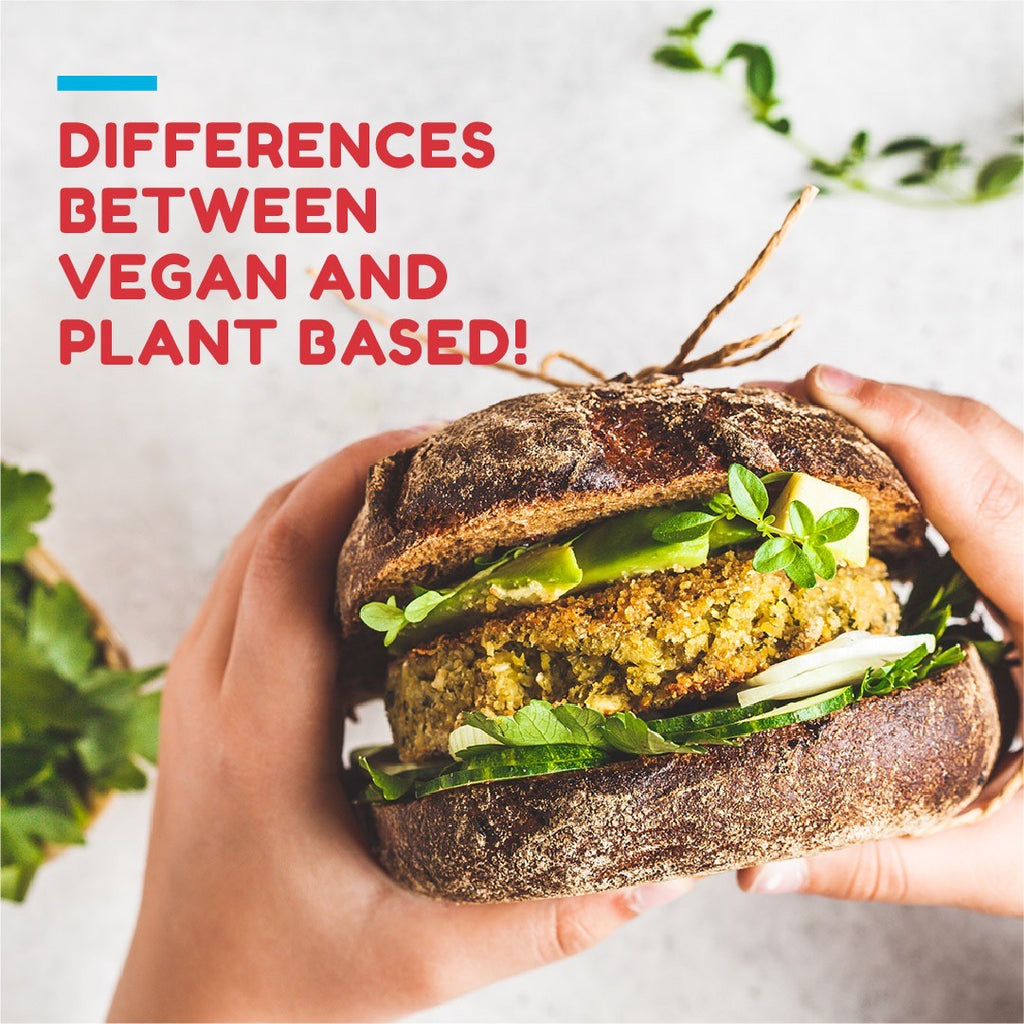
Differences between vegan and plant-based
Are you thinking of turning vegan but confused about what to include in your diet?
Well, you are not the only one. Like you, most people switching over to either a plant-based or vegan diet after discovering their multiple health benefits are unclear about what they can eat and what they cannot.
People are not aware that a vegan diet is not the same as a plant-based one. While they are similar, there are several significant differences.
In this blog, let us dive deeper to examine the differences between a vegan and plant-based diet and resolve this confusion.
Are Vegan and Plant-Based the Same?
No, a vegan and plant-based diet is not the same. Plant-based diets focus primarily on consuming foods derived from plants, such as fruits and vegetables, and also include nuts, seeds, and whole grains.
Contrarily, veganism is more like a lifestyle choice comprising a diet that is mostly plant based and excludes dairy products and other animal-derived food. People adopting veganism even avoid the use of personal and household items that are animal-derived, like leather belts, fur, or wool.
All vegans consume a plant-based diet, but not all people who follow a plant-based diet are vegans.
What is a Vegan Diet?
A vegan diet is made up entirely of plants, fruits, vegetables, nuts, and seeds. This diet excludes all animal products, including meat, dairy, and eggs.
A majority of vegans are motivated by ethical and environmental considerations. For example, they feel animals are their equals rather than just food.
Moreover, vegans exclude animal products not just from their diet but also from their daily lives. For example, a vegan family uses only cruelty-free cosmetics, cleaning products, apparel, and furnishings.
So, being vegan is more of a lifestyle choice, where you avoid using all animal-derived products voluntarily.
What is a Plant-Based Diet?
A plant-based diet is one that consists entirely of plant-based foods, including vegetables, fruits, whole grains, nuts, and seeds. People following a plant-based diet choose to consume a more significant proportion of foods from plant sources.
The health advantages that plant foods offer are what motivate most people to adopt a plant based diet. Plant-based diets stress consuming whole foods, which have been processed only a little and are as near to their natural condition as possible.
Benefits of Vegan and Plant-Based Diet
Now that we are clearer about the differences between vegan and plant-based foods let us take a look at the health benefits of both these diets.
Improves Immune System
A healthy immune system is critical for lowering your risk of cancer because it can detect and destroy abnormalities in cells before they develop an illness. Plants contain essential elements not found in other foods.
The vitamins and minerals, phytochemicals, and antioxidants found in plants can help keep your cells healthy and your body balanced, allowing your immune system to function optimally.
Reduces Inflammation
Acute inflammation can harm your body's cells and tissues and has been related to cancer and other inflammatory disorders such as arthritis. A plant-based diet can protect you since it eliminates the factors responsible for these diseases.
Plants include vital nutrients that help reduce inflammation in the body. The phytochemicals and antioxidants enhance your immune system and circulate throughout your body, eliminating toxins.
Maintains Healthy Weight
Plants help in maintaining a healthy body weight. A plant-based diet contains fibre, complex carbs, and water that is abundant in fruits and vegetables. This may help people feel fuller for more extended periods, enhance energy consumption when resting, and help maintain a healthy weight.
According to research, people who regularly consume vegan and plant-based diets have a lower body mass index (BMI) and lesser chances of getting obesity, diabetes, and heart disease than those who eat meat.
Improves Gut Health
The primary cause of all diseases is a poor gut, and plant fibre content improves gut health. It can slowly eliminate disease-causing germs in the stomach. A plant-based diet enhances gut health, allowing you to absorb more nutrients that boost your immune system and reduce
inflammation. In addition, plant fibre can decrease cholesterol and balance blood sugar, which is excellent for bowel and gut hygiene.
Can People Be Both Vegan and Plant Based?
Yes, it is possible to be both plant-based and vegan. Some people will begin as vegans, eliminating animal products from their diet primarily for ethical or environmental reasons. However, they will subsequently transition to a whole-food, plant-based diet to meet their health goals.
The Bottomline
We hope this article has helped remove most of your confusion about plant-based and vegan diets.
Both vegan and plant-based diets offer a wide range of nutritional benefits. However, instead of just following the recent trends, make your final choice based on the information we have provided, the principles you believe in, and what is more suitable for your health.

Cart
Your cart is currently empty.
Continue shopping